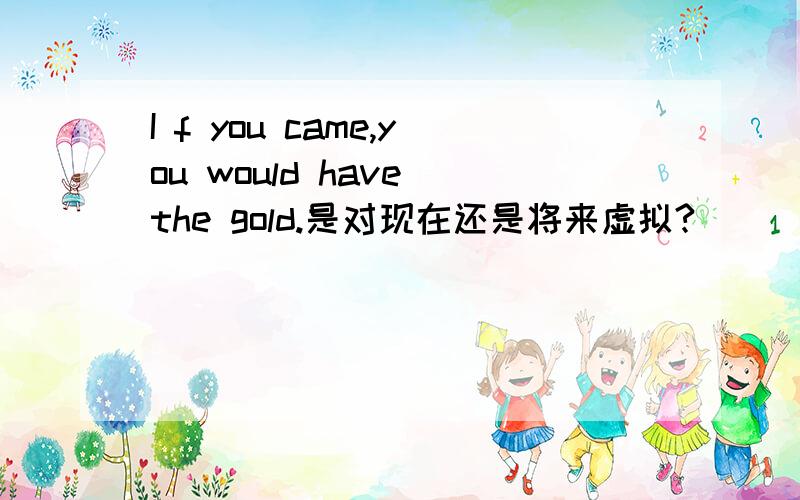I f you came,you would have the gold.是对现在还是将来虚拟?
来源:学生作业帮助网 编辑:作业帮 时间:2024/07/18 23:21:10

I f you came,you would have the gold.是对现在还是将来虚拟?
I f you came,you would have the gold.是对现在还是将来虚拟?
I f you came,you would have the gold.是对现在还是将来虚拟?
“将来虚拟”不好理解.如果说“表示尚未发生的假设”就好理解了.其实,人们在说这类话时,带有很强的推荐意味,但不知对方是否接受,所以用很客气的口吻来说.这就是个很典型的例子.
如果事情已经发生,就不这样说了,而说成:
Had you come,you'd have had the gold.(would + 完成时态)
或:
If you had come,.
过去,因为是用的过去时
过去将来时,如果你之前来的话,你能。。。。。
这是条件从句。
是将来虚拟
1) Zero condition
If+subject+simple present,subject+simple present
eg, If I see a spider, I get panicky
2) First COndition, used to express the consequence of an action
If subject+simp...
全部展开
1) Zero condition
If+subject+simple present,subject+simple present
eg, If I see a spider, I get panicky
2) First COndition, used to express the consequence of an action
If subject+simple present,subject+will+verb
eg, If I see a spider, I will have a panic attack
3) Second condition, used to express the consequence of a hypothetical situation
If subject+simple past, Subject+would+verb
eg, If I didn't suffer from a fear of flying, I would travel more
4) third conditioon
If subject+had+past participle, subject + would+have+
eg, if he had came here,I would have seen him
收起